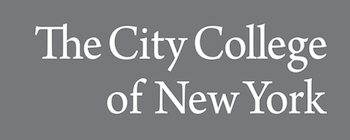When people think of doctors, they think of the people who create, maintain and protect life. They think of the individuals who cure diseases, prescribe medicine, and shock hearts back into rhythm. That assumption is correct, but what happens when you die? In history, when something traumatic happens, we reflect and learn from our mistakes to ensure it doesn’t happen again. The same thing happens when someone dies. Every day, there are doctors who speak to our dead to ensure that other doctors can prevent past mistakes from happening again. They work backward to put all the puzzle pieces together, so that tomorrow, one more life can be saved than today. This challenge of working against the clock to help medicine grow sparked a passion in me that has continued to flourish. I decided I want to be a pathologist because I want to give a voice to those who have so much to contribute but can’t say it themselves.
When I was younger, my grandfather died very suddenly from a heart attack. This was a huge shock for my family because for a sixty-year man, it seemed like he was in perfect condition. He had the endurance of a twenty-year-old, 20/20 vision, and he wasn’t on any prescribed medicines. As a family, we brainstormed potential causes for the heart attack but we couldn’t think of anything that made sense. The situation created desperation and the only option that we had left was to have a full autopsy conducted on his body. From the report, we learned that he had very high cholesterol which had caused plaque to build up in his arteries. This plaque buildup ultimately caused his heart attack. My mother and I couldn’t understand how his doctors didn’t catch such a serious condition. This is where my grandma gave us the final piece of the puzzle; my grandfather had stopped going to the doctor. From his “healthy” lifestyle, he developed this idea that if you look good and feel good, there is no need for a doctor. It was horrifying to hear but served as a very important message: Despite the feeling or appearance of good health, it is essential to still see a doctor frequently and to get tested for things that you might be genetically predisposed to. This experience not only started a family habit of being mindful of our cholesterol levels but it also sparked my interest in the medical field. I was upset that my grandfather was gone but amazed at what he was able to tell us through his death. I couldn’t believe that an autopsy gave us what we needed to save someone else in our family from going down the same path. This experience made me want to give someone else’s family the same sense of peace through the wonders of medicine. For me, an autopsy became a way to protect families; to help them understand the preventive steps they may need to take in the future. In a world where people aren’t aware of their genetic backgrounds and have this belief that “It won’t ever happen to me”, I feel that it is important to learn from our loved ones’ mistakes and to take a better look at genetic conditions that might run in the family or that you may have a higher possibility of developing.
An autopsy became a source of knowledge for me and knowledge is one of the most powerful things in the world. However, this knowledge doesn’t just solve medical mysteries. It also solves criminal mysteries. Unfortunately, in the world we live in today, crimes are committed and people die of unnatural causes. From shows like Criminal Minds, Bones, and Autopsy (starring Michael Baden) I learned that doctors are a critical element to solving murders. This intrigued me because I never thought that medicine and law enforcement were two professions that could be mixed. A body can give an infinite number of clues if examined by a trained eye. From a body, one can obtain environmental evidence such as carpet fibers that can give detective clues as to where a body may have been, weapon evidence which can be traced back to someone through purchases, and action evidence such as strangulation marks or broken nails which can give law enforcement clues to how a murder played out. It’s like a puzzle waiting to be solved. Despite how simple it may sound, I know that the field of pathology is a challenge; from attending medical school to becoming a master of disease, it is demanding work that takes time to excel in. I also know that it will be difficult to exam bodies that have been brutalized, distorted and disguised but being able to help bring justice and a sense of peace to families is enough to make it all worthwhile.
The human body is a beautiful thing. It is complex, efficient, and full of miracles. What people may not realize, is that our bodies are very vocal. They are able to speak to us if we are willing to listen. With education, research, and hard work I know that I will be able to train myself to understand their language to help those around me. As a pathologist, I will be constantly learning and constantly presented with challenges, but that’s what makes the job so interesting. Whether it be by educating people about genetic conditions or solving a murder mystery; my goal as an aspiring medical student is to be able to help people by doing what I love.



